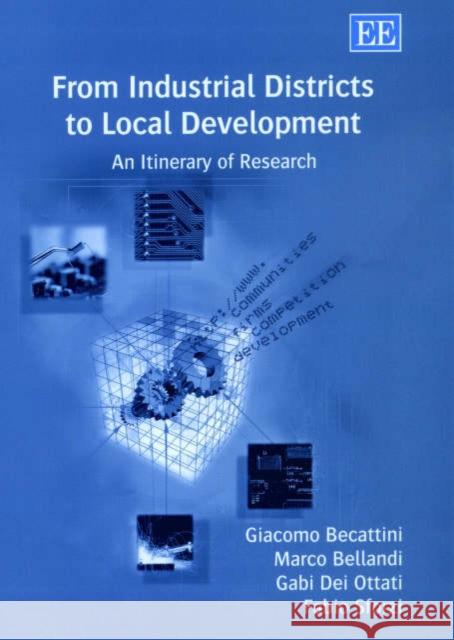From Industrial Districts to Local Development: An Itinerary of Research » książka
From Industrial Districts to Local Development: An Itinerary of Research
ISBN-13: 9781843761594 / Angielski / Twarda / 2003 / 256 str.
This text introduces a set of papers representing the main contribution of the "Florence school" to contemporary literature on industrial districts. The authors illustrate that the revitalization of the concept of industrial districts, returning to Alfred Marshall's 19th-century writings, is rooted in an unconventional interpretation of the economic development of Tuscany after World War II. Models of industrial organization and empirical investigation of industrial tendencies are featured, and Alfred Marshall's concepts of the advantages of the geographical agglomeration of specialized small firms in industrial districts are reintroduced. The authors extend the analysis of purely economic effects of agglomeration, including social, cultural and institutional foundations of local development, and contemporary case studies are presented. This book should appeal to scholars, lecturers and researchers focussing on industrial economics, development economics and economic geography. Its references to Italian political experiences should also be of interest to policymakers, in both developed and developing countries.











